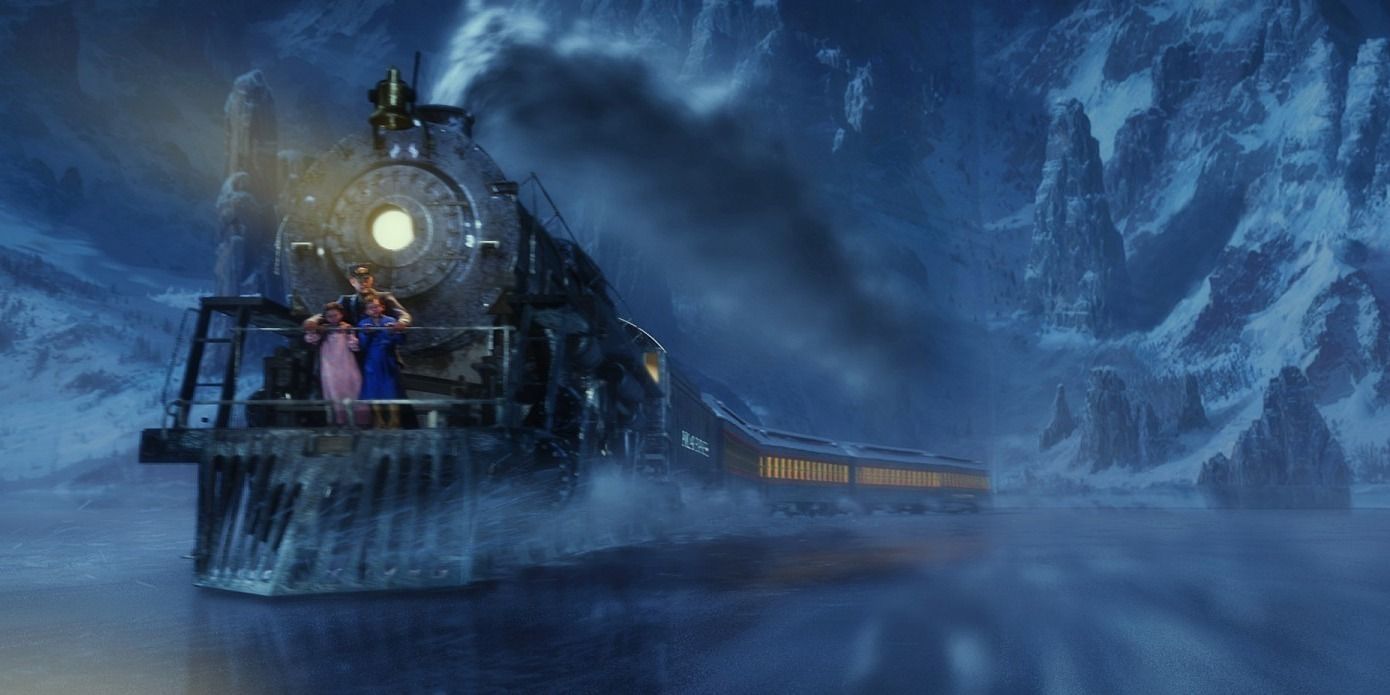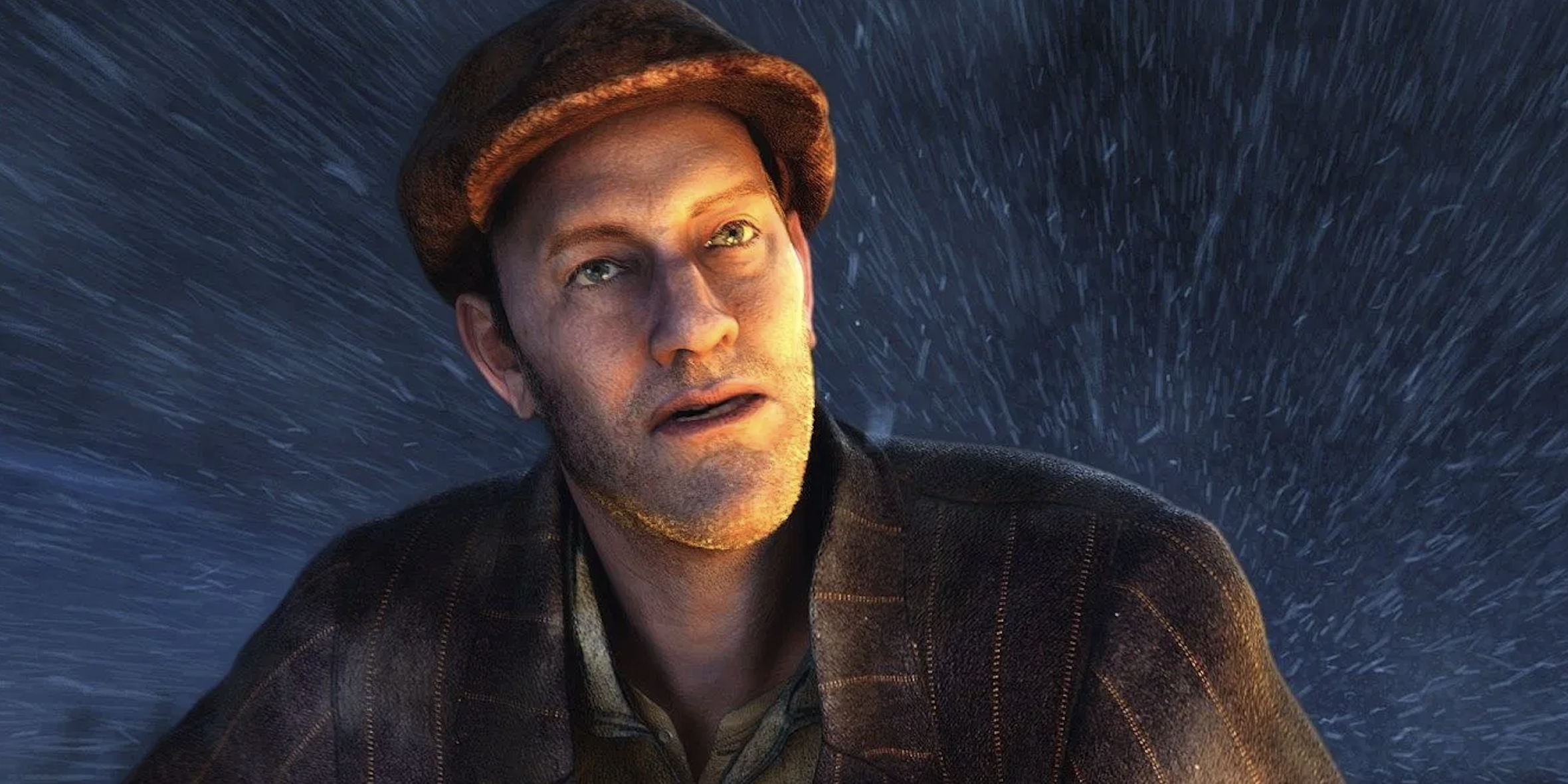Do the Kids in Polar Express Meet Again
The Polar Express was released in 2004, based on the 1985 children's book and was 1 of the outset movies to be filmed exclusively with movement capture. It has go one of the highest-grossing Thou-rated films ever made. This mysterious Christmas story has several characters and scenes in it that accept sparked the idea thatThe Polar Express is more than meets the eye. At that place are often internet theories near movies that seem to be looking besides hard into things that aren't even in that location. Only these dark theories most The Polar Express would definitely explain why the now Christmas archetype has such a melancholy yet inspiring tone to it.
The night is Christmas Eve in 1956, and an unnamed boy referred to by the script equally "hero boy" is old enough to now outset questioning the being of Santa Claus. While unsuccessfully trying to fall asleep, the boy (narrated by Tom Hanks) is afraid he'll never hear the audio of ringing bells from Santa'due south sleigh considering he doesn't believe anymore. But then suddenly, he hears a faint and afar sound—ringing bells. Later, he hesitantly boardsThe Polar Express and meets some friends and potential foes. They arrive at the Northward Pole, and later a mishap, have to make their way through Santa'southward workshop and the town so they might exist the 1 to receive the first gift of Christmas (a bong from Santa's sleigh).
The hero male child watches in sadness as everyone effectually him at the festival tin can hear and enjoy the beautiful sound of the bells on Santa'southward sleigh and reindeer. A reindeer is galloping, shaking the bells on its reins, but still the boy tin't hear the sound and feels as if it is too late for him to still believe in Santa and the magic of Christmas. A bong comes loose from the reindeer, and the boy picks information technology upward to give dorsum to Santa. This warms Santa'southward heart, and he allows the hero male child to be selected for the first gift of Christmas. The boy puts the bong in the pocket of his robe, but at that place is a hole in it that he didn't see—so the bell is lost. That is, until Christmas morning when the hero boy finds the bell along with a note from Santa. He rings information technology, and at last he can hear.

Tom Hanks is the immature male child merely much older narrating the story. The male child'southward parents could not hear the sound of the bell because they did not believe, and as Tom Hanks' grapheme got older, his friends and even sister started to slowly one afterward the other end hearing the sound as they too no longer believed. But Tom Hanks could still hear it even in his onetime age. The entire film has a fuzzy, afar, nigh dream-like quality to it making the viewer unsure every bit to whether the story was a dream or not. The moving-picture show has a positive message about not growing upwards as well fast and believing in the magic of the holidays but a little longer. Just the film is noticeably melancholy, whether that be because of an about exclusively blue color palette or loftier central violin score, or something else.
Considering of the sad tone and the fact that Tom Hanks voiced half dozen characters in full, this of course led to some theories almost how the characters Hanks voiced are continued. Hanks voiced the hero boy every bit an adult, the boy's father, conductor, hobo, a Scrooge puppet, and Santa Claus. Many recollect that the narrator, usher, and hobo are all the same person. Ebenezer Scrooge is famously known every bit an old man who hates Christmas. Because the voice of the Scrooge puppet and the narrator are the same, many call up that if the hero boy had not believed in the magic of Christmas, he would have ended up an former grouchy man who hates Christmas—forever trying to find his style to the North Pole (like the hobo) so he could believe again.

The hobo and the usher are reverse, or foils, of one another. The conductor is optimistic and believes in the Christmas spirit, only the hobo is much more cynical. Despite their differences, both characters tell the hero male child that "seeing is assertive." If the hero had non gotten on The Polar Express when he did, he wouldn't have made it i more year. He would have stopped believing and his fate would have been sealed. The railroad train came just when he needed it, and the viewers tin wait at the conductor as the hero's "good" angel side (or side more than willing to believe without question) and the hobo as his "bad" angel side (or the side more resentful to Santa and Christmas).
The usher and hobo are two of the paths the hero can take depending on what he chooses to believe afterwards this night. The Polar Express is dark because when ane stops assertive in babyhood imagination, they go older and older until ane twenty-four hour period, they pass away. Just like the hobo who was a bitter and cold ghost. By keeping imagination alive, one can have a happier and longer life, as seen by the conductor'south environment, as it'south the only aureate and lively colored palette in the whole motion picture. Because Tom Hanks voiced and then many characters, many believe this is to subtly show how the male child has several options about which adult he will choose to be like when he'south older.
Almost The Author
Source: https://gamerant.com/polar-express-may-lot-darker-remember/

0 Response to "Do the Kids in Polar Express Meet Again"
Enregistrer un commentaire